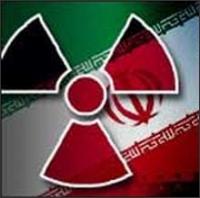Iran’s supreme leader, Ayatollah Ali Khamenei, claimed victory over the United States Sunday shortly after a historic nuclear agreement was reached in Geneva between the Islamic Republic and the 5+1 world powers.
Under the agreement, Iran, in return for sanctions relief, will keep much of its nuclear infrastructure, is limited to enriching uranium to the five percent level for six months, will convert its highly enriched uranium of 20 percent to harmless oxide and will allow more intrusive inspections of its nuclear plants by the International Atomic Energy Agency, which will be limited to only agreed-on facilities.
Fars News Agency, the media outlet of the Revolutionary Guards, reported that Khamenei in a statement thanked President Hassan Rouhani and his negotiating team for their achievement in Geneva.
“I thank God that… the new government… was able to legitimize the Iranian nation’s nuclear program on the international stage and take the initial step in a way that the nuclear rights and the enrichment rights of the Iranian nation are acknowledged by world powers where before they had tried to deny them, and (the agreement will) open the way for future big strides in technical and economic progress,” Khamenei said.
Rouhani, speaking at an event for families of “martyred” Iranian nuclear scientists, said Iran will continue its nuclear progress. “No matter whether the world wants it or not, this path (to nuclear capability) will, God willing, continue to the peak,” he said.
As reported exclusively in the Daily Caller in February 2012, sources inside Iran said President Barack Obama appeared to enter into an informal agreement with Iran that he believed would defuse the nuclear weapons crisis and keep Israel from attacking the Islamic regime. The agreement called for the United States to acknowledge that Iran is not pursuing nuclear weapons, and for Iran to hand over its highly enriched uranium, which is necessary for nuclear weaponization.
Those sources revealed then that Khamenei, in a secret meeting with his top officials and military commanders, had issued a directive to push for a step-by-step Russian proposal to defuse the crisis in which Iran would only hand over its 20 percent enrichment stock while keeping all low-enriched uranium stock (enough for six nuclear bombs) and cooperate more with the IAEA (all the while continuing its enrichment activity). In exchange, the West would ease up on the sanctions as each step was taken.
Iran has always believed that America has no choice but to accept its nuclear program. In an article in April 2012, titled “The Lessons from the Past for the Negotiations in April,” Mohammad Mohammadi, an Iranian international affairs and nuclear expert, wrote, “Looking back at the past decade, all the red lines by America and the West over Iran’s nuclear issue have now been transformed into acceptance. America has always adopted radical actions at first that have changed to symbolic measures later. Iran has always known that America and the West needed a way to solve the nuclear issue with some honor, and today it is quite visible that with the defeat of America’s policies toward Iran, the talk about a need to solve the Iranian nuclear issue diplomatically is a way to obtain that honor.”
The United States initially demanded that Iran suspend all its nuclear activities, Mohammadi said: “Today, though, the Americans have given up on that, and what Obama is asking is the halt of the enrichment to the 20 percent level with a full acceptance of Iran’s enrichment rights to the 5 percent level.” Enriching uranium to the 20 percent level is a critical step in achieving nuclear weaponization.
“The Americans have also changed their language,” Mohammadi said. “Where at first they claimed that they had evidence that Iran was working to make the nuclear bomb, now, though, they state openly that Iran has not yet decided to make a bomb. This change in their demands and in their language can only mean one thing — that they are incapable of stopping Iran’s nuclear program.”
Iran has negotiated its nuclear program with the U.S. and the world powers for over a decade, during which time it has successfully increased the number of centrifuges enriching uranium from 150 to over 19,000 today. It now has over 10 tons of low-enriched uranium — enough for several bombs — and has over a thousand ballistic missiles and, in collaboration with North Korea, is working on intercontinental ballistic missiles.
. . . . . . . . . . . . . . .
Reza Kahlili is a pseudonym for a former CIA operative in Iran’s Revolutionary Guard and author of the award-winning book “A Time to Betray” (Simon & Schuster, 2010). He serves on the Task Force on National and Homeland Security and the advisory board of the Foundation for Democracy in Iran (FDI). Kahlili published this article in The Daily Caller.
